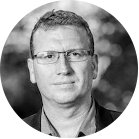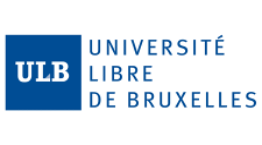Three job vacancies for a two-year post-doc researcher under a multilateral funding scheme at Université Libre de Bruxelles (Belgium), Université de Lausanne (Switzerland)and Katholieke Universiteit Leuven (Belgium)
REsilience and SOlidarity in intercultural encounters between displaced migrants and host society members: An ego-centered NETwork approach
We open three job vacancies for two-year post-doc researchers under a multilateral funding scheme at Université Libre de Bruxelles (Belgium), Université de Lausanne (Switzerland) and Katholieke Universiteit Leuven (Belgium). The RESONET project will employ an ego-centered social network approach to examine proximal social environments as spaces enabling resilience of displaced migrants, while concurrently sustaining host society members’ engagement in solidarity-based actions in support of displaced migrants.
The RESONET project is divided into three research axes to investigate from different theoretical and methodological angles how intercultural ties between displaced migrants and host society members are created and sustained.
The first axis of the project (lead institution ULB) targets displaced migrants hosted in collective accommodation centers in Belgium. A quanti-quali field survey investigates whether secured living conditions in the collective accommodation center and supportive social networks facilitate resilient trajectories and planning ability after the end of the asylum procedure.
The second axis of the project (lead institution UNIL) targets host society members in Switzerland and Belgium who are not mobilized in solidarity initiatives in favor of displaced migrants. Experimental and cross-sectional designs investigate whether prescriptive norms and intergroup contact experiences within proximal social networks enhance intentions to join solidarity initiatives.
The third axis of the project (lead institution KUL) targets both displaced migrants and host society members volunteering in solidarity initiatives in Switzerland and Belgium. Qualitative individual and dyadic interviews investigate whether reciprocity in resource exchange and communication accommodation improve the quality of emerging social ties.
Are you interested in the project? Check the requirements of each research axis carefully and choose the vacancy that best matches your academic profile. In your motivation letter, please indicate if you would be available to be hired in one of the other axes of the project.
Requirements: The successful applicant needs coordination skills, and adaptability to conduct fieldwork activities in challenging working environments. Mastery of French is necessary to communicate with social workers, while English is necessary to exchange with the research team. Understanding of Arabic or Pashto is an asset (but not a requirement) for facilitating interactions with displaced migrants. Excellent knowledge in quantitative research methods is requested, while experience in mixed-method approaches and longitudinal panel data is an asset.
Research unit: Université Libre de Bruxelles (Belgium) – CeSCuP
Principal investigators: Prof. Laurent Licata, Prof. Antoine Roblain (aroblain@ulb.ac.be)
Direct link to the job offer
Requirements: The successful applicant needs skills in designing experiments and in applying advanced statistical techniques to different data sources. Mastery of English (written and oral) is required. Understanding of French is an asset (but not a requirement). Excellent knowledge in quantitative social network analysis is required, while knowledge in other quantitative and experimental methods is an asset.
Research unit: Université de Lausanne (Switzerland) – UNILaPS
Principal investigator: Prof. Eva G.T. Green (eva.green@unil.ch)
Direct link to the job offer:
Requirements: The successful applicant needs communication skills to relate with solidarity initiatives and sensitivity to interculturality and cultural mediation. Mastery of English (written and oral) is required, while mastery of Dutch is necessary to conduct fieldwork activities. Understanding of French is an asset (but not a requirement). Excellent knowledge in qualitative methods such as content analysis is required, while experience in discourse analysis, dyadic interviewing, or social network analysis is an asset.
Research unit: Katholieke Universiteit Leuven (Belgium) – CSCP
Principal investigator: Prof. Karen Phalet; Dr. Emanuele Politi (emanuele.politi@kuleuven.be)
Direct link to the job offer:
The research team:
Eva G.T. Green is professor at the Laboratory of Social Psychology of the Université de Lausanne, Switzerland. Her research interests focus on personal and contextual determinants of intergroup relations from the perspective of both national majority and immigrant minority groups in multicultural societies.
Laurent Licata is professor at the Center for Social and Cultural of the Université Libre de Bruxelles, Belgium. He has extensively studied how recognition processes and conflicting collective memories shape inter-cultural relations in post-colonial societies.
Antoine Roblain is chargé de cours at the Center for Social and Cultural Psychology of the Université Libre de Bruxelles,Belgium. His current research focuses on life trajectories and sociocultural adaptation of newcomers, and psychological processes underlying intergroup and inter-minority solidarity with migrants.
Karen Phalet is professor at the Center for Social and Cultural Psychology of the KU Leuven, Belgium and research fellow at the German Center for Integration and Migration Research, Germany. Her research establishes and explains disparities in belonging, achievement and political voice for migrants and minorities across European societies.
Emanuele Politi is postdoctoral fellow and invited professor at the Center for Social and Cultural Psychology of KU Leuven, Belgium. His current research focuses on facilitating factors enabling psychological resilience and socio-cultural adjustment among asylum seekers and immigrant minority groups.








